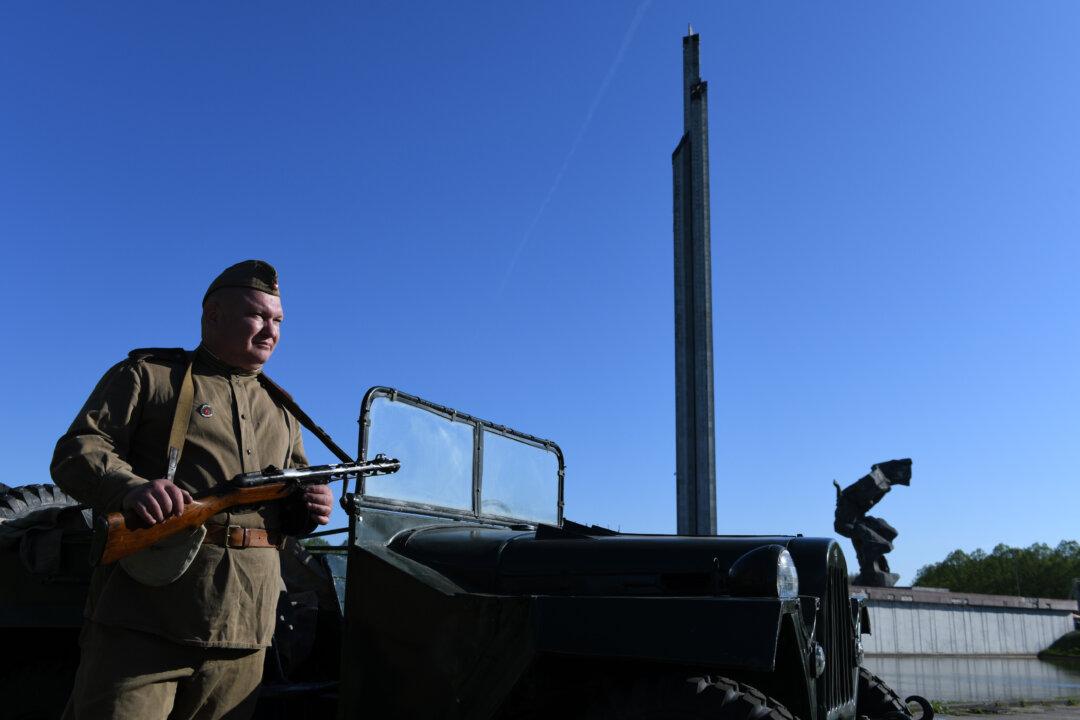Authorities in Latvia began dismantling a Soviet-era monument in the capital city of Riga on Tuesday after the country’s government agreed that communist monuments in public spaces should be removed.
The statue, which commemorates the Red Army’s victory over Nazi Germany, was erected in 1985 and stands like a high-rise in downtown Riga’s Victory Park. It has been cordoned off by police.




